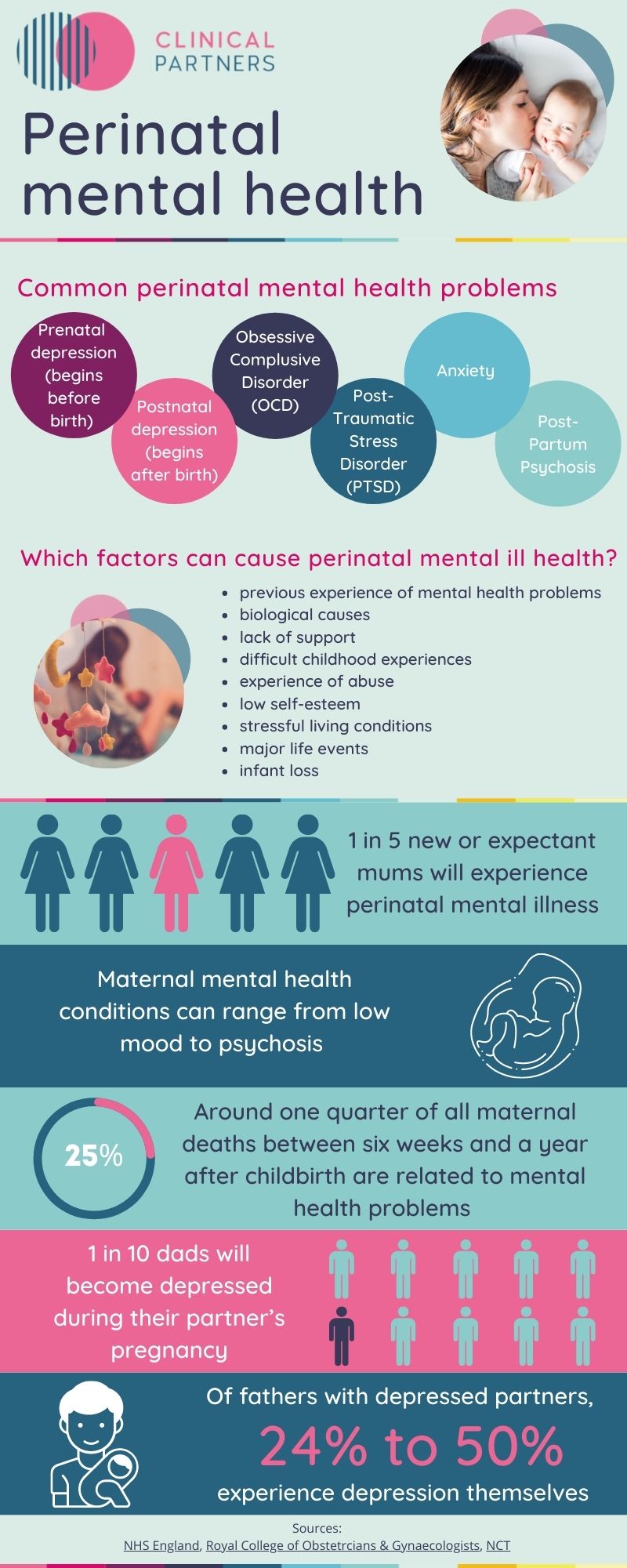Support for parents with perinatal mental health issues
The NHS recently announced it would be opening a new service for new, expectant or bereaved mothers around England. The 26 new hubs will bring maternity services, reproductive health and psychological therapy together as one service to provide maternal mental health support for 6,000 mothers a year.
Up to two in ten women are thought to experience some form of mental health difficulty in the perinatal period (During pregnancy to around one year after giving birth). This new service from the NHS will provide much-needed support at a time when a system of care is needed more than ever.
Several studies have pointed towards a decline in maternal mental health during the pandemic. In particular, a recent report from the Maternal Mental Health Alliance that found women have faced extra pressures on their mental health, including anxiety about giving birth during lockdown or about becoming unwell, fears about losing employment, and increasing levels of domestic violence.
It’s important that those suffering from any type of maternal mental health issue talk to someone about what they are going through. All too often, those who suffer feel guilty and ashamed. Instead of discussing it with others, they conceal their worries and keep everything bottled up. The first step is to let your friends and family know what’s going on and talk to your GP.

Rae Britton
Content Editor
BA Joint Hons, QTS
Rae oversees the creation of a range of content that offers insight, support and guidance on mental health issues. She is both passionate and ably qualified. She is a former primary school teacher, while she also has three children, two of whom are neurodivergent, having ADHD and autism. This means she can combine her expertise and direct experience to shape content that helps those in need to survive, thrive and excel.

